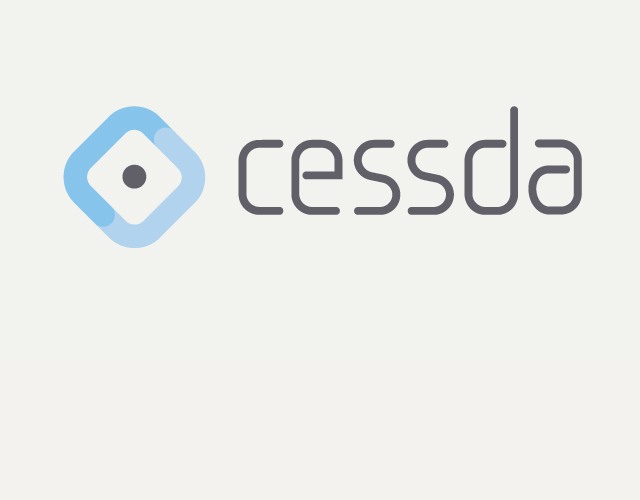Services
In addition to archiving and dissemination of data, FSD offers data-related information services and support for research data management at all stages of the data life cycle for researchers, students, teachers, research funders and anyone else with an interest in research data.
Services for Designated Communities
The central user groups of FSD services are: students, teachers, researchers and research funders.
FSD archives research data collected on Finnish society, people and cultural phenomena and preserves the data for the long term. Students, teachers and researchers can get their hands on both Finnish and international research data through our holdings. FSD offers a variety of services online, free of charge. FSD user services will also help you personally with e.g. data management and depositing your data at FSD.
Take a closer look at FSD's services for designated communities!
Depositing Data
FSD curates digital data in a secure environment and ensures the data are easily accessible to users, decade after decade.
We provide support to researchers in archiving their data and do a large part of the practical work needed to archive the data.
We publish descriptions of all datasets in Finnish and English on Aila Data Service, increasing the international visibility of data. Data descriptions are also available in several national and international catalogues.
Read more about the benefits of open data in our Data Management Guidelines.
Sharing and depositing data benefits researchers in many ways:
- Sharing data is a scientific merit. Merits in producing and sharing research data can be included, for example, in Researcher’s curriculum vitae, under Scientific and societal impact of research.
- Publications based on archived data get more citations than publications based on dormant or inaccessible data.
- Some international scientific publications require that data are accessible as a condition for publishing the article.
- Several research funders, including the Research Council of Finland, Kone foundation, Finnish work Environment Fund and Finnish Foundation for Alcohol Studies, require a data management plan and recommend that data produced in projects funded by them are archived at FSD.
- Availability of research data promotes open science, scientific enquiry and debate.
Information Service
FSD provides advice and guidance in searching and using research data.
Our free-of-charge information service can help you with questions related to the data in FSD holdings as well as data management and long-term preservation of data. We will gladly also help you with questions concerning data collection planning, ethical and legal issues, and informing research participants.
You can also ask our user services personnel for help with locating international data.
FSD User Services
email: user-services.fsd ( at ) tuni.fi
tel. +358 29 452 0411
All service requests are recorded in our internal database to ensure quick and effective service.

Aila Data Service
All datasets archived at FSD are available on Aila Data Service, free of charge.
There are more than 1,900 datasets on Aila and approximately 1,600 of them are quantitative. There are currently more than 6,200 registered Aila users and they include users from all Finnish universities and polytechnics as well as some institutions abroad. Roughly ten percent of all Aila users are from outside Finland.
Conditions of use apply to most datasets on Aila and downloading them requires registration. There are some 160 datasets on Aila that are freely available to all users without registration. Quantitative datasets are translated into English for research use on a discretionary basis.
Data Management Guidelines
The online guidelines contain practical instructions on managing digital research data in all stages of the data lifecycle.
In the guidelines you will find, among others, detailed advice on preparing a data management plan, guidelines on informing research participants about the processing of their personal data, and practical tips on anonymising both quantitative and qualitative research data. The online guidelines are written by FSD's data service experts.

Research Methods Guidebook
The Research Methods Guidebook is an open online environment for teaching and learning quantitative and qualitative research methods in the social and behavioural sciences.
The Guidebook is primarily designed for social science disciplines, but the exercises can also be applied to other disciplines. The resource is easy to use, and does not require previous knowledge of methodology. The Guidebook is available in Finnish and maintained and developed by FSD.

Textual Data Collection Tool Penna
Penna is a data collection tool created to facilitate collection and streamlined archiving of qualitative textual data.
With Penna, the Finnish Social Science Data Archive handles the technical implementation of data collection for your study as well as the participants' archiving permissions. FSD archives all datasets collected with Penna as far as the writers consent to archiving. Penna was developed for FSD by computer science students at the University of Tampere. For the time being, Penna's user interface is only available in Finnish.
A closer look at FSD services
FSD’s basic operations include archiving and dissemination of research data for reuse, but we also offer several other types of services for researchers, students and everyone else interested in issues regarding research data.
-

Aila Data Service
The Aila Data Service provides access to data archived at FSD, in accordance with the conditions set for each dataset. On Aila, there are both quantitative and qualitative datasets. Registered Aila users include students, teachers and researchers from all Finnish universities and universites of applied sciences.
-

Data Management Guidelines
The online guidelines written by FSD’s experts contain practical instructions on managing digital research data in all stages of the data lifecycle. In the guidelines you will find, among others, detailed advice on preparing a data management plan.
-

Information service
Our user services will be glad to help you with any questions relating to research data. Need help with planning data collection, managing your data or long-term preservation? Cannot find suitable data for your research? Contact us and we will help.
-

Penna
Penna is a data collection tool created to facilitate collection and streamlined archiving of qualitative textual data. It handles the technical implementation of data collection as well as the participants’ archiving permissions. Penna is available only in Finnish.
-

Pohtiva
Pohtiva is the Finnish Party Agenda Database containing current and past agendas of Finnish political parties as well as other significant political documents. Pohtiva is only available in Finnish.
-

Research Methods Guidebook
The Research Methods Guidebook consists of sections on qualitative and quantitative research methods. Up-to-date methodological texts, exercises and datasets are suitable for studying and teaching in the higher education institutions or self-study, especially in the field of social sciences and humanities. The Guidebook is only available in Finnish.
-

MOTV - Research Methods Web Resource
Research methods web resource (MOTV in Finnish) is FSD’s older environment for teaching and learning quantitative and qualitative research methods of the social and behavioural sciences. MOTV is only available in Finnish.
-

Services of CESSDA
CESSDA is a pan-European research infrastructure consisting of data archives across Europe. CESSDA provides training and data services free of charge. Finland is a member of and FSD is a national service provider for CESSDA. The CESSDA Data Catalogue contains metadata of all data in the holdings of CESSDA’s service providers.
-

Loda
The Loda longitudinal study metadata portal provides openly available variable-level information on longitudinal data series archived at FSD. Currently, the portal contains metadata for five studies in the Finnish National Election Study series, conducted between 2003 and 2019.
-

Archiving
FSD is a reliable partner in sharing your digital research data and preserving them long term. We create a version of your data suitable for reuse, describe the data for you and make sure that the data can be easily found and reused according to the agreed conditions of use.
